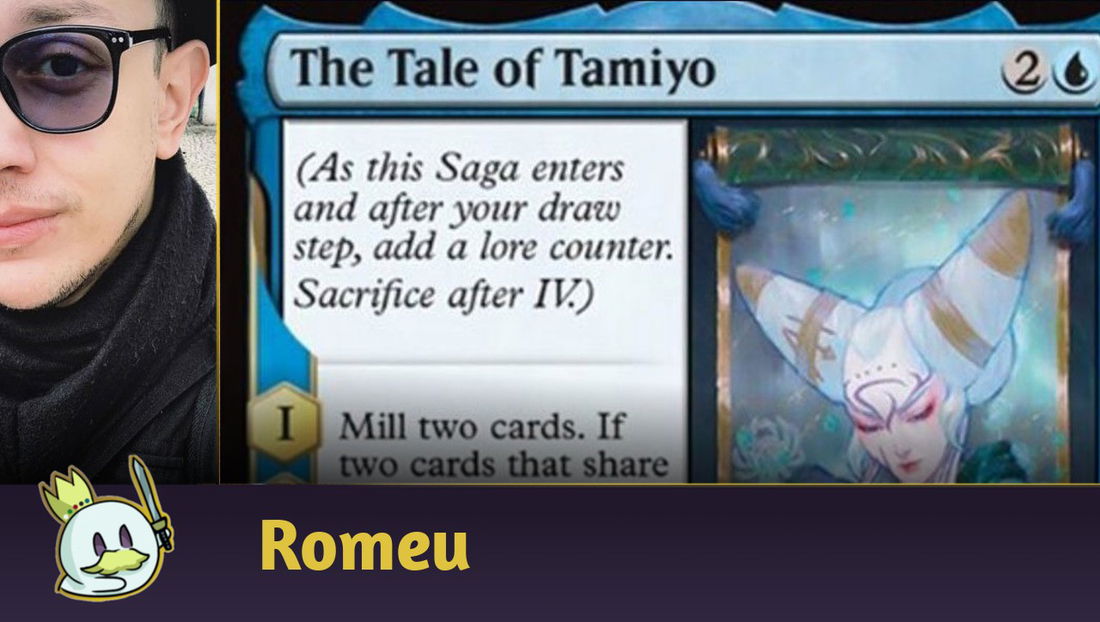At least once every set, a card appears in the uncommon or common slots and presents abilities and potential that we normally expect from the expansion's rares - often due to their flexibility.
This card may have appeared in Duskmourn: Untimely Malfunction. With three choices, one of which is an ability that is unlikely to be useless in many occasions, the spell has become the big talk in recent days and has enough potential for practically every format where it will be legal, even in Legacy.
Untimely Malfunction - Review

Despite not having the name, Untimely Malfunction has the design of a charm: the player has three options to choose from and can only choose one. None of them are very impressive on their own, but when combined, they give the card the versatility needed to be good.
It combines the effects of three different cards that normally cost two mana: Shatter, Swerve, and Abandon the Post. On their own, none of these cards have affected the competitive Metagame for years and/or never have, so what makes Untimely Malfunction so relevant? Versatility.

It's in the same pattern as Abrade when it comes to versatility. Sure, Abrade became a sideboard staple in the eternal formats and a maindeck card in Standard because it was a removal and a way to answer unwanted artifacts in a single slot. In Modern, for example, it used to answer Ensnaring Bridge against Lantern or to have more interaction against Humans or Spirits.
Untimely Malfunction is not a removal and some of its effects are more conditioned by what the opponent does: getting two blockers out of the way is important when you have a Slickshot Show-Off and destroying artifacts answers a dozen problematic permanents in Magic, but most importantly, this space is also shared with a protection effect - the one to redirect spells or abilities that have a single target. Just to name a few effects that matter:

And I'm being general, because there are ways to make this effect matter in a game in every format. Untimely Malfunction adds a lot of versatility and cards in its category tend to become Sideboard staples or, at least, impact all competitive formats in which they are legal with the option to enter the lists.
Where it fits in depends on how formats behave, so let's dive into it.
Untimely Malfunction in Standard

The main targets of Untimely Malfunction in Standard include removal, pump spells, and some Planeswalker and creature abilities, as well as the possibility of having a Negate or other counterspell “countered” by switching targets.
The problem lies in the other modules: at the moment, we don't have enough relevant artifacts that make players run directed hate against them - Standard is a format where enchantments have gained more space and artifacts have lost their place, and not even Subterranean Schooner has appeared in the lists since the rotation. Its main target would be Urabrask's Forge, a decent option, but it doesn't always play in games where you would want Untimely Malfunction.
On the other hand, the spell has some interesting tricks in the Red Aggro mirror today, such as changing the target of a Monstrous Rage and removing the opponent's blockers, and this can change the dynamics of these games a little bit today, altering the equation of the arms race between them due to the need to play a little more around this possibility.
In the end, the use of Untimely Malfunction in Standard may be limited to how relevant the artifacts will be in the future. With a racing-focused set planned for 2025 (assuming they haven't changed its design from last year to now), we could see more impactful vehicles in the first quarter of the year, increasing the card's long-term viability.
Untimely Malfunction in Pioneer
Pioneer also has a large target pool for the new spell, and the rise of Prowess decks could be a motivator to play it as well.

The number of legal targets for the card is relevant, especially when we can redirect Thoughtseize, Bloodtithe Harvester, triggers that give targets and even use it to bypass Dovin’s Veto.
Its Shatter is as relevant as the artifacts we face. Do we need another turn to win the game, and the opponent played a Parhelion II? It can work (but Abrade is better in this case), do we need to respond to a Damping Sphere that prevents you from casting spells but also needs protection from removals? Untimely Malfunction covers this function.
The module for removing blockers depends a lot on each game. In the Prowess mirror? Excellent. Against Izzet Phoenix's chump blocks? It's an option. Against Boros Convoke? Terrible. Humans? Even worse, and let's not even discuss on how this is a 100% dead card against Angels.
Untimely Malfunction in Modern

Despite the high number of legal targets in Modern, I believe that Untimely Malfunction has the lowest chance of appearing in this format because the main artifact that matters in Modern today is The One Ring and this spell doesn’t deal with it.

Sure, we can mention Karn, the Great Creator's toolbox and how it can answer Chalice of the Void while clearing blockers from Aggro decks and dealing with Counterspell, Fatal Push and even discard spells - but are any of those worth it when you're not answering the format's biggest game-setter and main source of card advantage? No.
Abrade has seen little to no play in Modern and is a bit more pervasive in the current Metagame because it deals with creatures (destroying an Ocelot Pride or Guide of Souls is the difference between losing or winning against Boros Energy), and the restriction on not resolving The One Ring makes it impossible to use. So I don't think Untimely Malfunction has much of a place in Modern.
Untimely Malfunction in Legacy
Legacy, on the other hand, gets a lot more out of the answer to artifacts.

And it’s not like the format lacks options for the Swerve mode, either.

These qualities are not enough to make the new spell a Legacy staple, but they show the potential the card has in sideboards, especially in Delver of Secrets lists that tend to use a copy of Abrade for different situations and can, therefore, use Untimely Malfunction for other situations and take advantage of the versatility that the combination of Brainstorm and Ponder with Fetch Lands offers in finding their one-ofs.
Conclusion
That’s all for today!
If you have any questions or suggestions, feel free to leave a comment!
Thanks for reading













— Comentarios 0
, Reacciones 1
Se el primero en comentar